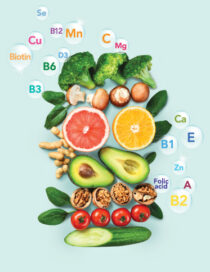Too Much Screen Time
Growing up in the digital age, children today spend more hours than ever in front of digital devices such as smartphones, tablets, and computers. Whether for study or play, this heavy reliance on screens means their developing eyes are being exposed to blue light at higher levels.
Parents often notice their child rubbing their eyes after online classes, complaining of headaches, or staying up late because they can’t fall asleep easily. These are early warning signs of too much screen exposure. Just as we remind children to eat their vegetables or brush their teeth, guiding them to use screens responsibly is part of building healthy habits.
How Much Screen Time is Too Much?
The World Health Organization (WHO) advises no screen time at all for children under 2 years old. For children aged 2 to 5, screen time should be limited to less than one hour a day, and ideally even less. For older children, experts recommend setting boundaries, encouraging breaks, and balancing screen use with outdoor play, reading, and family activities. Managing screen time is one of the most important steps parents can take to protect their child’s eye health.
How Blue Light Affects Children
Blue light is the highest-energy portion of visible light, and overexposure can be harmful to young eyes that are still developing. Unlike adults, children’s eyes absorb more blue light because the natural filters in their eyes are not yet fully formed.
Common effects of blue light include:
- Digital eye strain: Symptoms like fatigue, dryness, blurred vision, and headaches can make children uncomfortable and affect their focus on schoolwork.
- Sleep disruption: Blue light suppresses melatonin, the hormone that signals the body to sleep. Too much screen time, especially before bedtime, makes it harder for kids to fall asleep and stay rested.
- Poor concentration: When sleep is disrupted, children may feel tired the next day, making it harder to concentrate in school, stay alert, and perform well academically.
Why Macular Pigment Optical Density (MPOD) Matters
MPOD is a measure of the levels of macular pigment in the retina. The macular pigment, composed of lutein and zeaxanthin, acts as natural sunglasses to shield the eyes from blue light. What makes MPOD even more fascinating is that its levels are closely linked to lutein and zeaxanthin concentrations in the brain. Research has shown that higher MPOD is associated not only with better vision but also with improved academic performance. This makes it especially important during a child’s formative years, when their eyes and brain are still developing.

Shield Against Blue Light
Shield your kids against the harmful effects of blue light with VitaHealth Kids Blu-Lite Shield. Formulated with XanMax® marigold extract, these yummy, orange-flavoured gummies provide a rich source of lutein and zeaxanthin to build up MPOD levels. By strengthening this natural shield in the eyes, Blu-Lite Shield supports better protection from blue light and enhances visual clarity during your child’s key development years.













